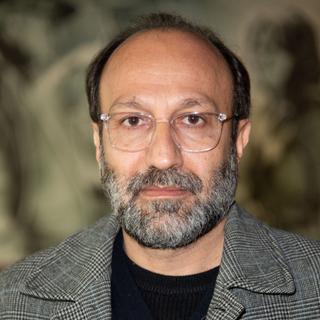


Iranian filmmaker Asghar Farhadi: 'Censorship dries up your creativity and closes all of art's channels'
InterviewThe multi-award-winning director of films including 'A Hero' and 'A Separation' recalls his childhood, immersed in the stories of his elders, and discusses the current political situation in his home country.
A regular winner of prestigious awards (two Best Foreign Language Film Oscars, a Grand Prix at Cannes in 2021 for A Hero and a Golden Bear in 2011 for A Separation), 51-year-old Asghar Farhadi recently completed the script for his next feature film, which will be shot in English in New York and be produced by an American company. While chairing the jury for the 15th edition of the Arcs Film Festival, dedicated to independent European cinema, in Savoie, France, the director talked about his reluctance to shoot in Iran, where he lives.
I wouldn't be here if...
... if I hadn't had a family structure in the almost geographical sense of the word. We lived in a small town on the outskirts of Isfahan. Our house was the last in a long dead-end street where my entire family lived, including my aunts and uncles. Many of us cousins used to meet outside in this cul-de-sac to play and talk to each other. As the youngest of this group of children, I grew up listening to stories.
What were these stories?
There were all the things that older kids were allowed to do and which they told us about – especially their trips to Isfahan's cinema, which they kept secret from their parents. Very often, the late afternoons were devoted to these films. Needless to say, they weren't literal accounts: They invented chapters, characters... I wouldn't be here if I hadn't listened to my elders telling me about the films they'd seen. Nowadays, they all tell me: "'You should know that it's thanks to us that you became a filmmaker.'
What was your first real experience of cinema?
When I finally managed to convince one of these older kids to let me join his escapade. It was a secret, of course. We got on the bus and arrived at the cinema, where the film had already started. We couldn't risk waiting for the next showing, or we'd be too late getting home. So we went right into the middle of the screening. I loved the atmosphere in the room. I was fascinated by that beam of light coming out of the projector, all that dust hanging in the air.
As for the film, whose title I can't remember – probably an Eastern European film – one of the characters was a child of about 10. I immediately identified with him. I spent the entire trip home and the ensuing days imagining the first part of the story, which we'd missed. That's when I became a filmmaker: It was my turn to tell this first half of the film on our street and have my own audience.
What kind of child were you?
I was very boisterous. Today, I may seem like a calm and composed person, but back then, I couldn't stand still. I was up to one mischievous act after – even though I was a very good student. The only thing that could calm me down was listening to my grandfather, an extraordinary storyteller. I found him fascinating. He had a special way of telling stories. He always conjugated verbs in the present tense and added suspense to his stories. He gave me a taste for learning stories and telling them.
You have 75% of this article left to read. The rest is for subscribers only.
